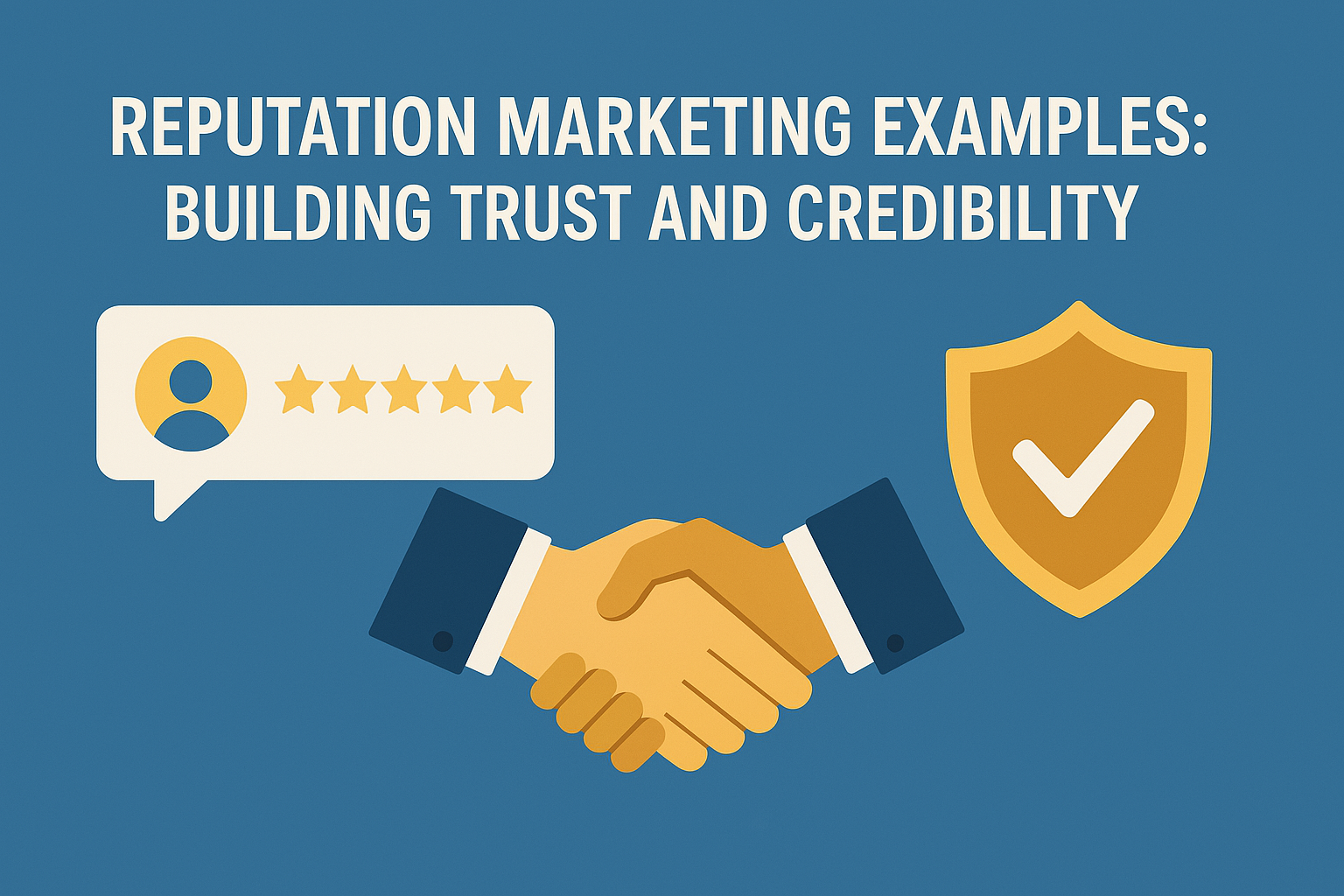In today’s digital age, reputation marketing is essential for businesses looking to thrive.
It’s not just about having a good product or service; it’s about how your brand is perceived by customers. This article explores various reputation marketing examples and how they can help your business build trust and credibility.
What is Reputation Marketing?
Reputation marketing is the strategic process of promoting positive customer perceptions and managing the public’s view of your brand.
It combines elements of public relations, social media, and customer feedback to create a strong, trustworthy image.
The goal is to enhance your organization’s reputation, turning satisfied customers into brand ambassadors.
Why is Reputation Marketing Important?
Understanding the importance of reputation marketing can help you focus your efforts effectively. Here are some reasons why it matters:
- Builds Trust: A positive reputation fosters trust among potential customers.
- Increases Sales: People are more likely to buy from brands they trust.
- Enhances Visibility: Positive reviews and testimonials can improve search engine rankings.
- Mitigates Negative Feedback: Effective reputation management can reduce the impact of negative reviews.
Effective Reputation Marketing Examples
Here are some practical reputation marketing examples that showcase how businesses can successfully build and maintain their reputation:
1. Customer Reviews and Testimonials
One of the simplest yet most effective ways to enhance your reputation is through customer reviews and testimonials.
Platforms like Google My Business, Yelp, and Facebook allow customers to leave feedback. Here’s how to leverage them:
- Encourage Reviews: Ask satisfied customers to leave positive reviews.
- Showcase Testimonials: Display glowing reviews on your website or social media.
- Respond to Feedback: Engage with both positive and negative reviews to show you care.
2. Utilizing Social Media
Social media is a powerful tool for reputation marketing. Brands can engage directly with their audiences, showcasing their values and personality.
Consider these strategies:
- Share User-Generated Content: Highlight posts from satisfied customers sharing their experiences.
- Respond Promptly: Address questions or complaints quickly to show you value customer feedback.
- Build a Community: Foster connections through interactive content, polls, and discussion posts.
3. Influencer Collaborations
Partnering with influencers can significantly boost your brand’s credibility. Influencers have established trust with their followers and can help promote your products.
Here’s how to make the most of influencer marketing:
- Select the Right Influencers: Choose influencers whose values align with your brand.
- Encourage Authenticity: Allow influencers to share genuine experiences with your products.
- Track Campaign Success: Monitor engagement and sales to measure the impact of influencer partnerships.
4. Content Marketing
Creating valuable content can enhance your brand’s reputation by positioning you as an industry leader.
Here are some content marketing strategies:
- Blogging: Write informative articles that address customer pain points.
- Webinars: Host webinars to share your expertise and engage with potential customers.
- Case Studies: Showcase success stories to demonstrate your product’s effectiveness.
5. Community Involvement
Being involved in your local community can significantly enhance your reputation.
Here are a few ways to engage:
- Support Local Events: Sponsor or participate in community events to raise your profile.
- Charitable Contributions: Donate to local charities and showcase your commitment to social responsibility.
- Volunteer Programs: Encourage employees to volunteer, demonstrating your brand values.
6. Reputation Monitoring Tools
Utilizing reputation monitoring tools can help you keep track of your online presence.
Here’s a brief overview of how to use these tools:
- Set Up Alerts: Use tools like Google Alerts to monitor mentions of your brand.
- Analyze Sentiment: Leverage analytics tools to gauge public sentiment about your brand.
- Adjust Strategy: Use insights from monitoring to refine your marketing strategies.
Conclusion
In conclusion, reputation marketing is vital for building a trustworthy brand in today’s competitive landscape.
By utilizing the examples mentioned above, you can enhance your brand’s image, foster customer loyalty, and ultimately drive sales.
Remember, a positive reputation is not just a nice-to-have; it’s a critical component of your business’s success.
Start implementing these reputation marketing examples today to see a significant impact on your brand’s credibility and customer trust.


